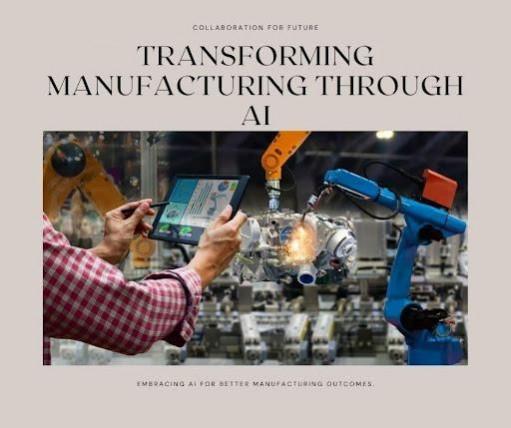
In today's rapidly evolving industrial landscape, the integration of artificial intelligence (AI) is not just a trend but a transformative force reshaping manufacturing. With investments in AI expected to soar to $13 billion by 2024, the fusion of human expertise and AI-driven technology is leading to efficiency, quality, and innovation advancements. As explored in Sai Anvesh Durvasula's insightful research, the rise of human-AI collaboration drives the future of manufacturing, heralding a new era where precision and human judgment work hand in hand to achieve unprecedented success on the production floor.
The Rise of Human-AI Interaction in Manufacturing
AI adoption in manufacturing is skyrocketing, with investments set to reach $13 billion by 2024, a 400% increase from 2018. Beyond automation, AI's real power lies in collaboration with human workers. The future of manufacturing is being shaped by this synergy, particularly with the rise of collaborative robots or cobots. At BMW, cobot-assisted workers now detect up to 10% more product defects compared to manual inspections alone. This combination of AI's precision and human judgment drives a new era of quality and efficiency on the production floor.
Key Innovations in AI-Driven Manufacturing
Several key innovations are driving the transformation of manufacturing through human-AI collaboration, revolutionizing different aspects of the value chain. Predictive maintenance, for instance, uses machine learning algorithms to analyze real-time sensor data and predict equipment breakdowns, enabling proactive maintenance that drastically reduces downtime. Siemens has successfully implemented this approach in 120 of its factories, cutting turbine downtime from 95 hours per year to just 48, leading to significant cost savings.
Quality optimization is another area where AI is making a substantial impact. AI-driven computer vision systems are now autonomously assessing product compliance with rigorous standards, reducing quality issues by over 30% in industries like aerospace manufacturing. Platforms such as MachineMetrics have played a key role in this enhancement, showcasing AI's potential to elevate production quality.
Inventory management is also being transformed by AI, with deep learning and simulation modeling being used to optimize raw material orders and fulfillment levels. Intel, for example, has leveraged these technologies to improve chip inventory planning, resulting in $100 million in capital cost savings and a 21% reduction in inventory levels.
Moreover, robotic process automation (RPA) is being utilized to automate repetitive tasks like order processing and documentation. IBM's global implementation of RPA has not only improved order processing accuracy from 87% to 99% but also reduced per-order processing costs by 62%. These innovations highlight the powerful role AI plays in enhancing efficiency, accuracy, and cost-effectiveness across the manufacturing industry.
Challenges and the Path Forward
Despite significant advances, implementing AI in manufacturing comes with challenges. Integrating AI into legacy IT systems requires extensive retrofitting, which raises cybersecurity and privacy concerns. Additionally, the lack of in-house AI expertise demands significant investment in reskilling the workforce. Sai Anvesh Durvasula stresses the need for clear communication protocols between human workers and AI systems to build trust and ensure effective collaboration. He also underscores the importance of multi-stakeholder leadership to responsibly guide the ongoing evolution of human-AI interaction, ensuring ethical and sustainable implementation on the factory floor.
Looking Ahead: The Future of Manufacturing
As AI rapidly evolves, its impact on manufacturing is set to surge, with projections estimating a $3-4 trillion contribution to the global economy by 2030. This potential, however, hinges on overcoming existing barriers and fully integrating AI across manufacturing processes. The transformative power of human-AI collaboration is evident, offering a blend of human expertise and AI precision that drives unprecedented levels of efficiency, quality, and innovation. As the industry increasingly adopts these technologies, the future of manufacturing promises to be more productive and prosperous than ever, setting the stage for a new era of industrial success.















